
Diet is crucial for a healthy life, especially as we age. “Good nutrition across the lifespan helps prevent chronic disease — and we know that it’s never too late to make improvements to support healthy aging,” Dana DeSilva, PhD, RD, and LT Dennis Anderson-Villaluz, MBA, RD, LDN, FAND, tell the Office of Disease Prevention and Health Promotion. “Older adults are at greater risk of chronic diseases, such as heart disease and cancer — as well as health conditions related to changes in muscle and bone mass, such as osteoporosis. The good news is that this population can mitigate some of these risks by eating nutrient-dense foods and maintaining an active lifestyle.” Here are 15 dietary choices all seniors should avoid.
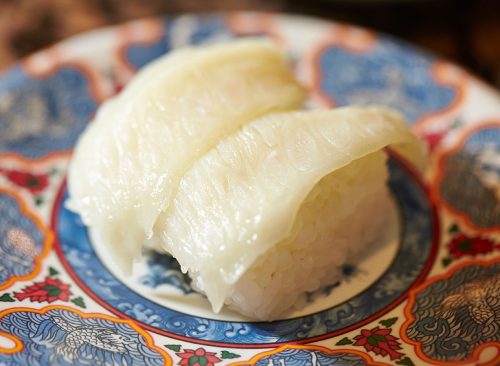
Seniors should avoid eating raw or unpasteurized foods. “Since older adults’ immune systems are less effective at fighting infections, foodborne illness is a concern,” says the NCOA. “According to the Centers for Disease Control and Prevention (CDC), Listeria is the third leading cause of death from food poisoning in the U.S. Older adults are at particular risk for this potentially life-threatening infection, since more than 50% of all Listeria cases affect people 65 and older.”

Be mindful of processed deli meat and bacon. “An occasional hot dog at a ball game, a festive ham at family gatherings—these aren’t going to kill you,” nutritionist Karen Collins tells Bethesda Health. “What we’re cautioning against is making bacon, ham, sausage and lunch meat a part of your everyday pattern of eating. Enjoy these foods, but just limit them to a special occasion.”
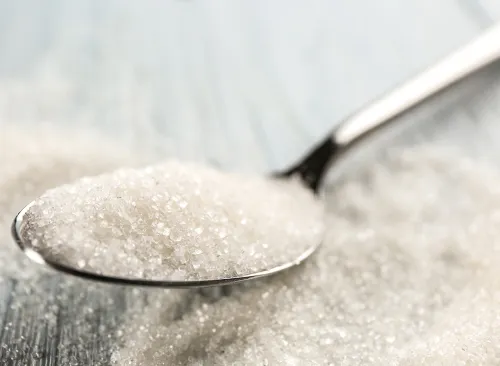
Watch out for added sugars, experts warn. “Our brain uses energy in the form of glucose, a type of sugar, to fuel cellular activities,” Dr. Uma Naidoo tells CNBC. “But a high sugar diet can lead to excess glucose in the brain. This can cause memory impairments and less plasticity of the hippocampus, the part of the brain that controls memory.”

Protein is vital for healthy aging. “Eating enough protein helps prevent the loss of lean muscle mass,” DeSilva and Anderson-Villaluz say. “But older adults often eat too little protein — especially adults ages 71 and older. Since most older adults are meeting recommendations for meats, poultry, and eggs, it’s important to remind them that seafood, dairy and fortified soy alternatives, beans, peas, and lentils are great sources of protein. These protein sources also provide additional nutrients, such as calcium, vitamin D, vitamin B12, and fiber.”
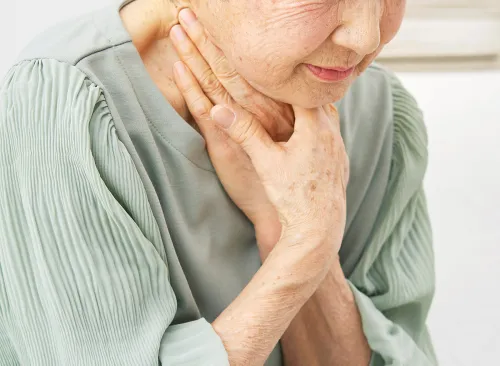
Choking hazards such as popcorn, steak, and white bread should be avoided. “Some older adults may have difficulty swallowing or chewing due to dry mouth, which can result from dehydration, diabetes, nerve damage, or certain medications,” says the NCOA. “For people with swallowing issues, foods need to be the right consistency. Some examples: nutrition shakes, soups, pudding, pureed or mashed vegetables.”

Make sure to get enough vitamin B12. “The ability to absorb vitamin B12 can decrease with age and with the use of certain medicines,” DeSilva and Anderson-Villaluz say. “Health professionals can help older individuals get enough vitamin B12 by ensuring that they’re consuming enough through foods, such as breakfast cereals. Older adults should talk with their health care provider about the use of dietary supplements to increase vitamin B12 intake.”

Artificial sweeteners are bad for your health, experts say. “When you use artificial sweeteners that have no nutritional value, they can increase “bad” gut bacteria which can negatively affect your mood,” Dr. Naidoo says. “These sweeteners include saccharin, sucralose and stevia. Aspartame can be especially harmful, and has been directly linked with anxiety in research studies. It also causes oxidation, which increases harmful free radicals in the brain.”

Alcohol affects you differently as you get older. “Not only does alcohol negatively impact sleep quality; it can raise blood pressure and cause hypoglycemia in older adults with diabetes,” says the NCOA. “Consuming alcoholic beverages can also interfere with some medications. Older adults should speak with their doctor to find out how alcohol may impact their health.”
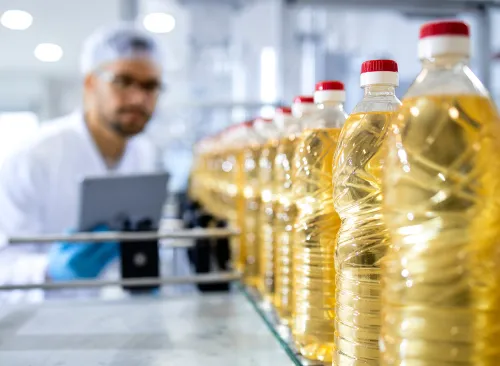
Use coconut, olive, or avocado oil instead of seed oils. “Highly processed oils are often extracted from soybeans, corn, rapeseed (the source of canola oil), cottonseed, sunflower and safflower seeds, and contain a lot of omega-6 fatty acids,” Dr. Naidoo warns. “Excess consumption of omega-6s can trigger the body to produce chemicals that can lead to inflammation in the brain.”
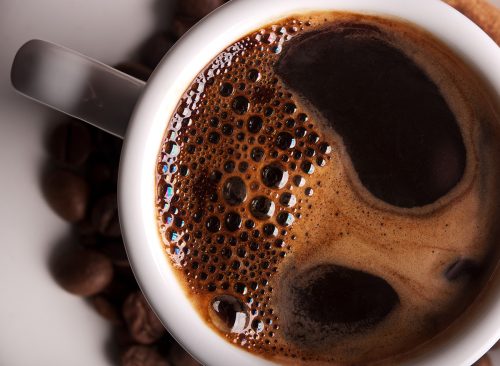
Seniors should be careful about their caffeine consumption. “It is indeed possible to develop caffeine sensitivity,” Eve M. Glazier, MD, and Elizabeth Ko, MD, tell UCLA Health. “Due to certain changes that take place in our bodies as we grow older, this becomes more common as we age. Research shows that older adults clear caffeine from the body more slowly than younger people.”

Fried foods should be avoided. “While French fries, donuts, and egg rolls may be tasty, they’re often sources of unhealthy fats and oils,” says the NCOA. “Fried fare is typically high in trans fats, hydrogenated oils, and tropical oils, which raise cholesterol and are linked to heart disease, diabetes, and cancer. They’re also often loaded with calories, which can lead to increased calorie intake, weight gain, and obesity. Steer clear of the bad fats and include more healthy fats in your daily diet.”
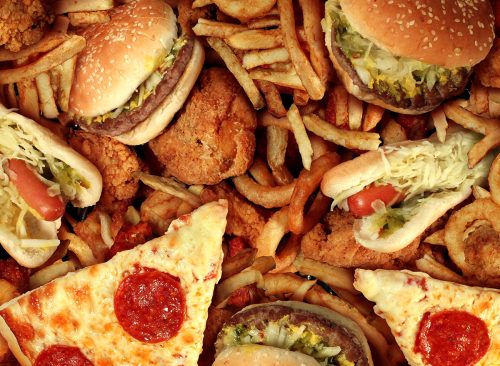
Fast food is not your friend. “These processed foods not only have sodium, but they also have sugar of various types,” dietician Jason Crum tells OSF Healthcare. “And those paired together instigate a hormonal response that most of us don’t know how to really read and respond to. So we fill ourselves with the calories instead of the actual food or the nutrients that would make our hormones work better, so it makes the addiction stronger.”
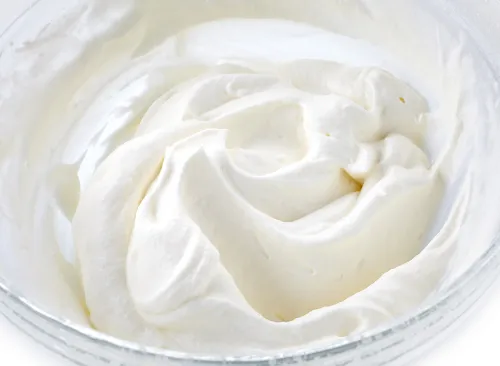
Avoid food products such as Cool Whip. “As convenient as these replacements may be, they’re a mix of unhealthy hydrogenated oils, high fructose corn syrup and enough chemical additives to make you squirm,” says Bethesda Health. “One tablespoon of real whipped cream sports just 26 calories and 1.7 grams of saturated fat.”
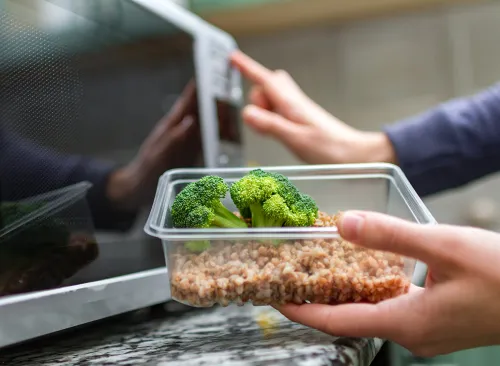
BPA food packaging can be dangerous for health. “When food is wrapped in plastic or placed in a plastic container and microwaved, substances used in manufacturing the plastic (plasticizers) may leak into the food,” says Harvard Health. “In particular, fatty foods such as meats and cheeses cause a chemical called diethylhexyl adipate to leach out of the plastic.”
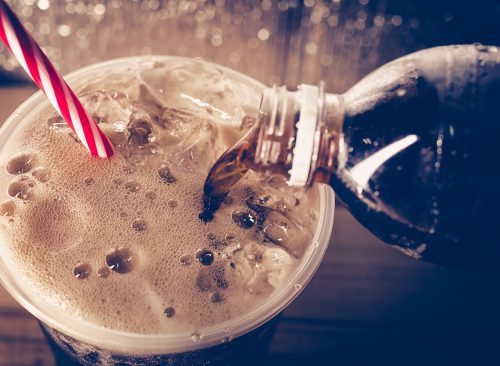
Seniors should avoid diet sodas. “After accounting for other risk factors, like body mass index, high blood pressure and diabetes, researchers noticed that those who drank diet soft drinks on a daily basis were 43 percent more likely to suffer a vascular event than people who drank none,” says Bethesda Health.














